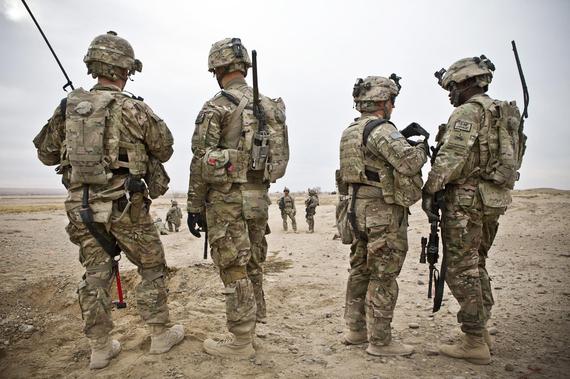By Jim McGovern and John Isaacs
President Obama never wanted an endless war in Afghanistan, but that is exactly what America is currently facing.
Just last week, the Washington Post reported that "Top U.S. military commanders... are now quietly talking about an American commitment that could keep thousands of troops in the country for decades."
President Obama previously promised to have American troops out of Afghanistan by the time he left office, but last October he announced that the U.S. will keep close to 10,000 troops in Afghanistan through most of 2016 and retain 5,500 soldiers there by the time he leaves office. Now, keeping substantial numbers of U.S. troops in Afghanistan indefinitely is on the table.
After decades of war, the United States learned the hard way that we could exit Vietnam and be stronger for it. A perpetual war in Indochina ended when we were chased out, with helicopters rescuing Americans from rooftops.
Today in Afghanistan, we are at a crossroads similar to the one we faced in Vietnam. We must remember the lessons we learned and stop Afghanistan from becoming another endless war.
In Afghanistan, there is no clear end game and no clear formula for success. This is the longest war in our country's history and another five or 10 or 25 years are not likely to bring about democracy, a stable government or a definitive end to the Taliban's threat to Kabul.
The simple truth is that there is no military solution to the crisis in Afghanistan, only a political solution. And only the Afghan people themselves can determine the fate of their future. Simply perpetuating our military presence there is not the answer and more must be done to support the latest round of proposed peace talks with the Taliban to lay the foundation for lasting regional stability.
We must embrace a smart, forward-thinking approach and work with our military leaders to create a clear plan to finally bring our troops home. U.S. forces are currently deployed in an astounding 147 countries across the world. Stretching our military so thin is not the right way forward.
Looking at the world today, we know that we face real threats, but we also know that smart and strong American leadership starts with a clear-eyed approach that recognizes that another endless war is not the way to keep our country safe and strengthen global security.
We have seen the power of American diplomacy with the leadership of President Obama and Secretary Kerry in securing a historic deal with Iran to prevent them from obtaining a nuclear weapon and avoid an unnecessary war. This was a major victory for global stability and a powerful example of why war must not be our first instinct.
It's time to face the fact that the U.S. mission in Afghanistan has changed significantly since 2001 when Congress passed the authorization for the use of military force there. We simply cannot continue on the current path.
To prevent this from becoming another endless war, Congress must work with President Obama to create a plan that supports regional stability and includes the clear exit strategy we have been waiting for. Congress should insist on clarity in our Afghanistan policy. If this or any future administration wants to expand our military footprint there, then Congress must debate and vote to approve or disapprove such action.
President Obama promised the American people that he would bring our troops home from Afghanistan. It's time to fulfill that promise. Our troops and their families deserve nothing less.
Jim McGovern is a U.S. Representative from Massachusetts and John Isaacs is the Executive Director of Council for a Livable World.

